
1
Smiling at someone can have significant health consequences.Sharon Salzberg
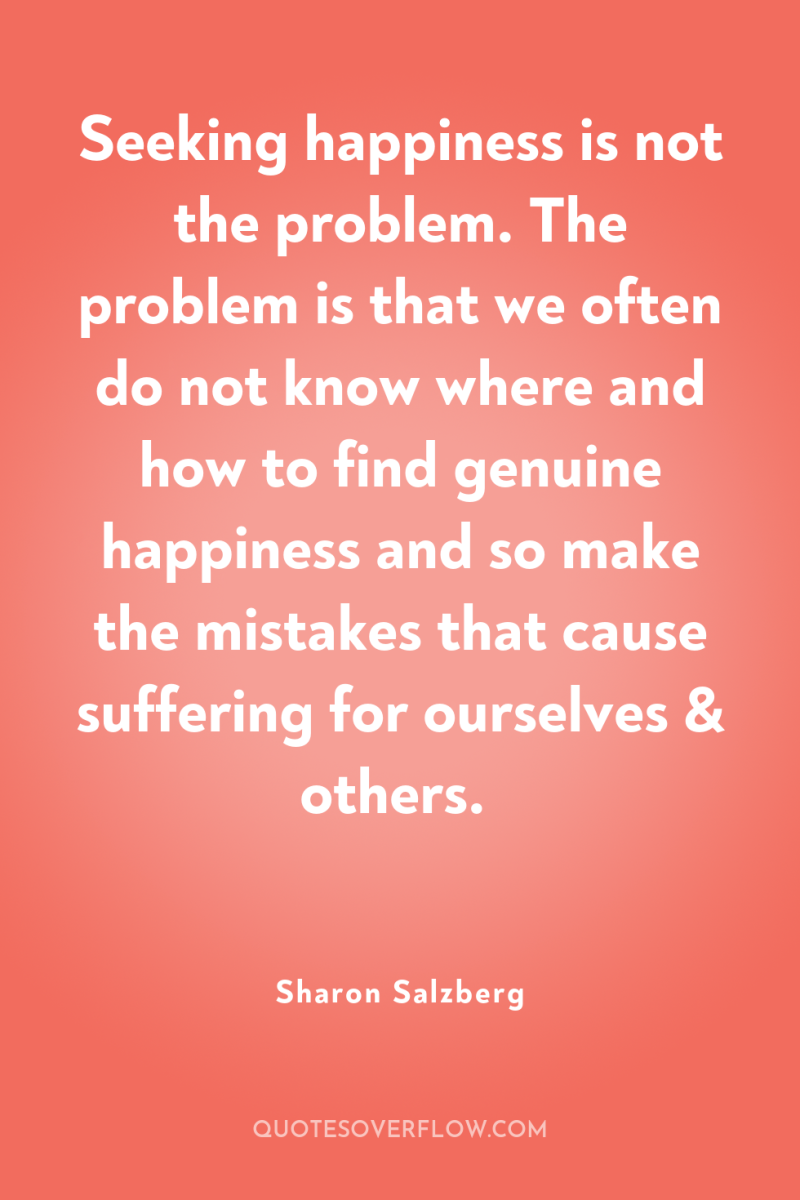
2
Seeking happiness is not the problem. The problem is that we often do not know where and how to find genuine happiness and so make the mistakes that cause suffering for ourselves & others.Sharon Salzberg
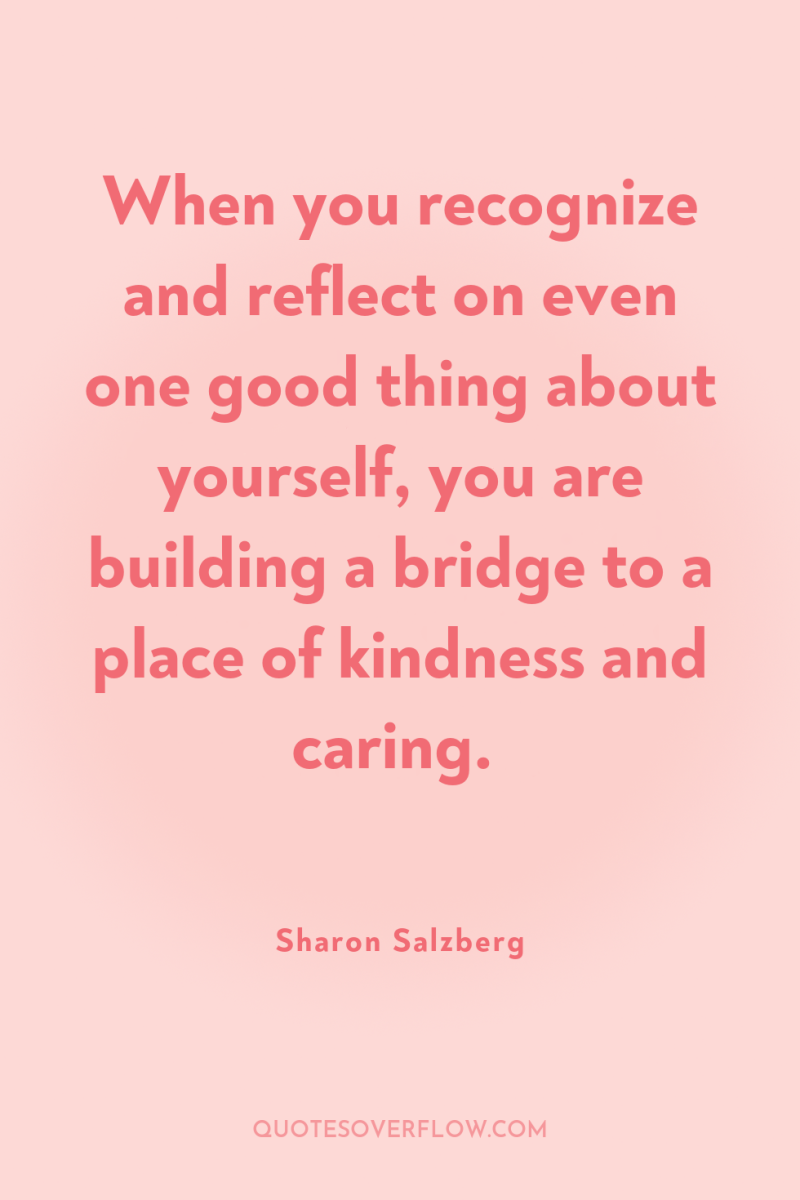
3
When you recognize and reflect on even one good thing about yourself, you are building a bridge to a place of kindness and caring.Sharon Salzberg

4
Never feel ashamed of your longing for happiness.Sharon Salzberg
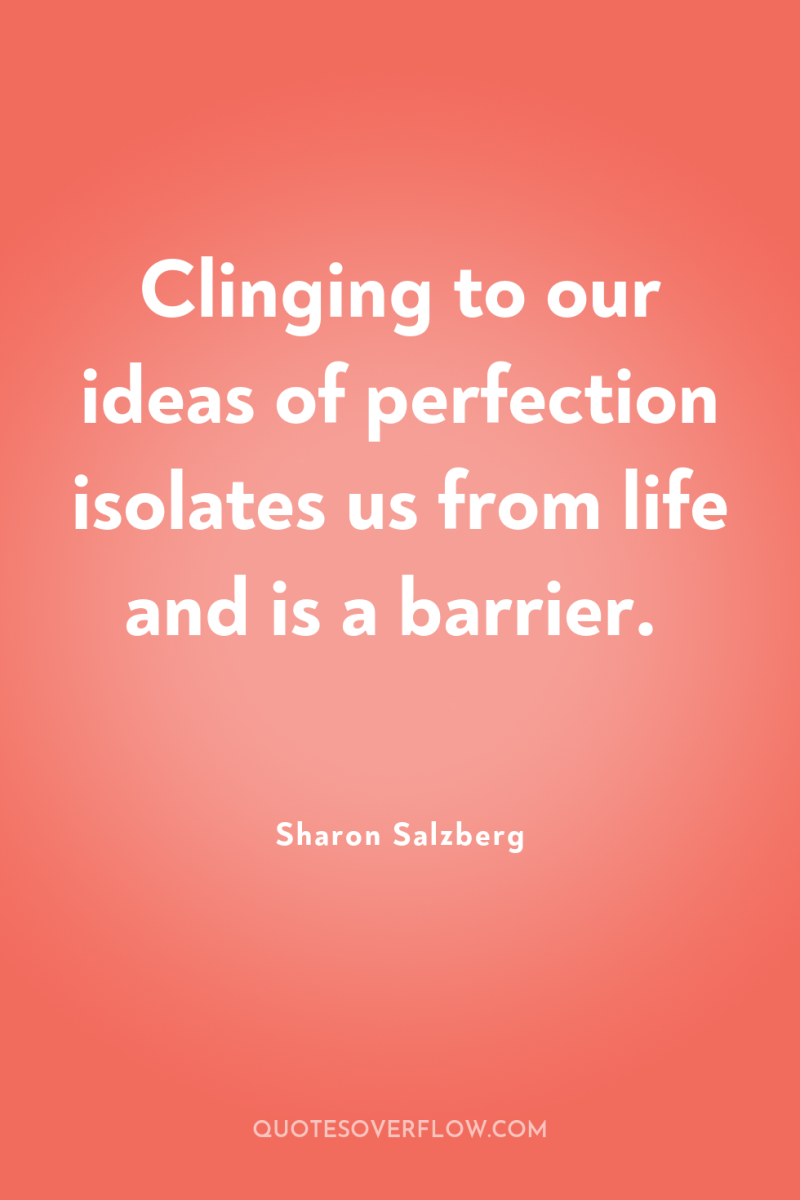
5
Clinging to our ideas of perfection isolates us from life and is a barrier.Sharon Salzberg
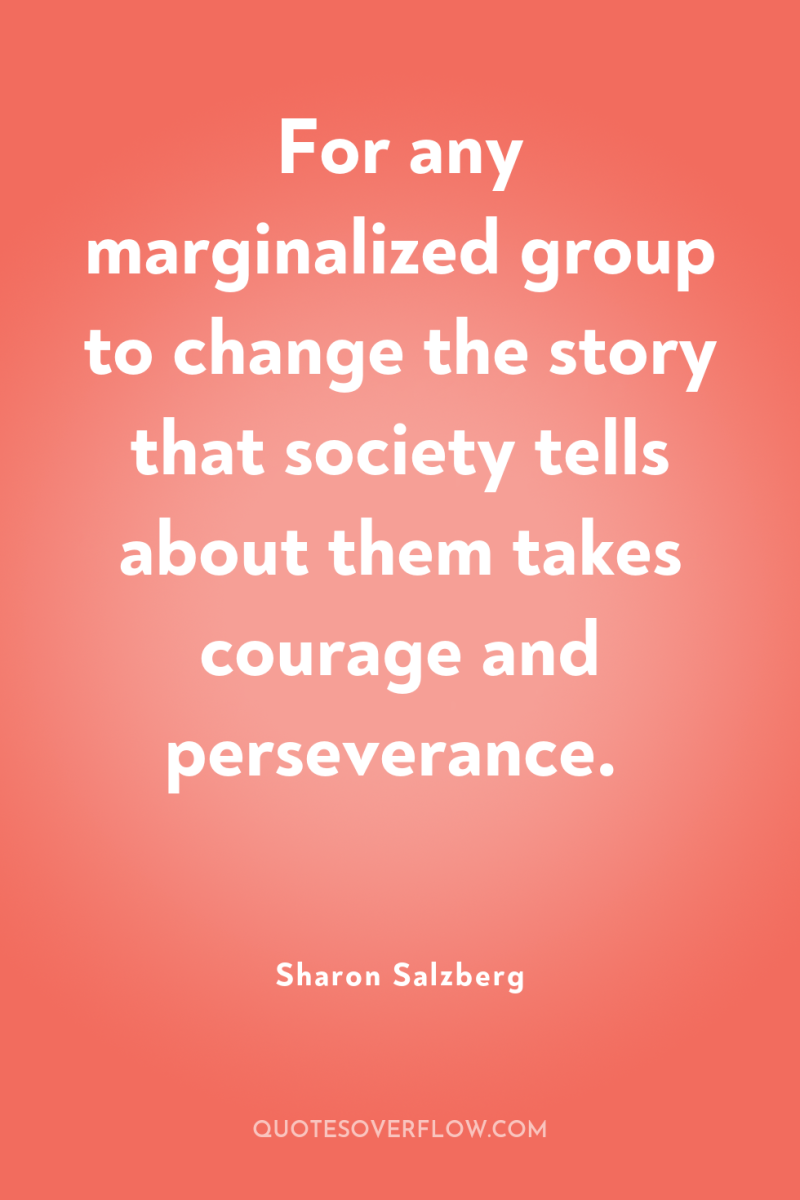
6
For any marginalized group to change the story that society tells about them takes courage and perseverance.Sharon Salzberg
7
The idea that traumatic residues–or unresolved stories–can be inherited is groundbreaking.Sharon Salzberg
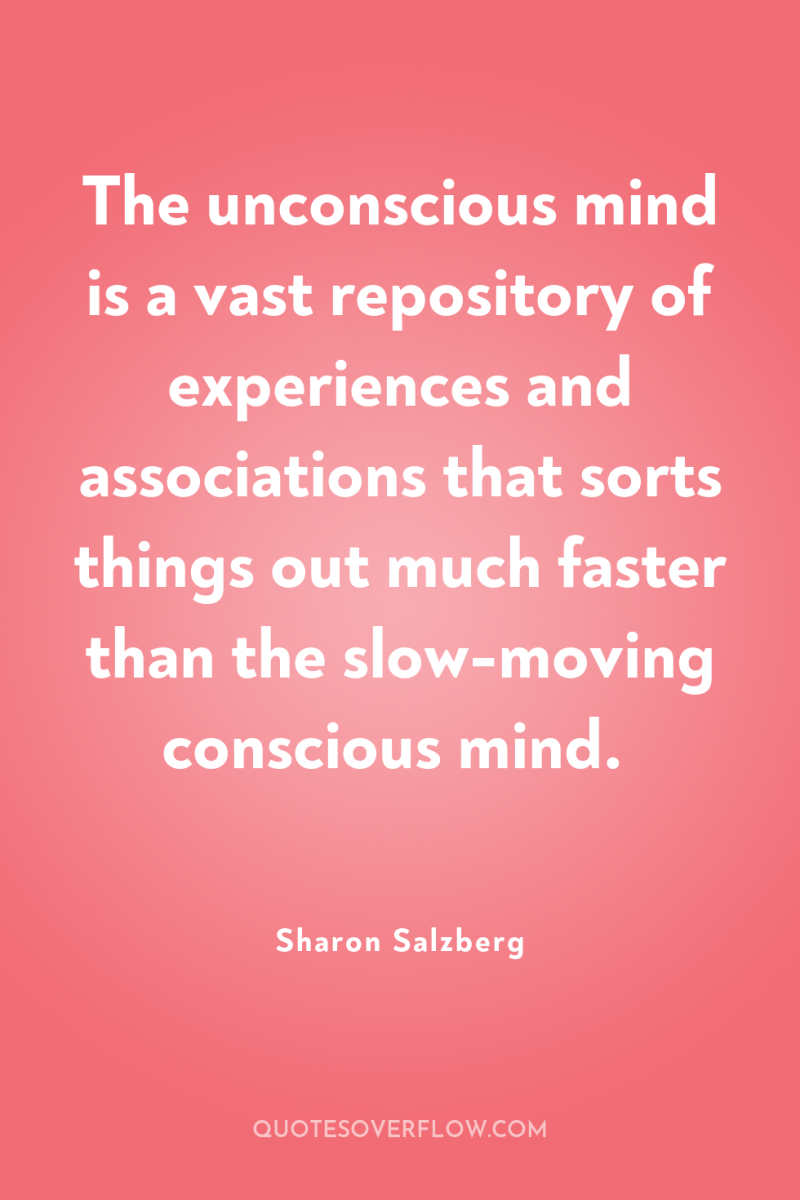
8
The unconscious mind is a vast repository of experiences and associations that sorts things out much faster than the slow-moving conscious mind.Sharon Salzberg
9
The practice of sympathetic joy is rooted in inner development. It’s not a matter of learning techniques to “make friends and influence people.” Instead, we build the foundations of our own happiness. When our own cup is full, we more easily share it with others.Sharon Salzberg
10
Sometimes people in abusive situations think they’re responsible for the other person’s happiness or that they’re going to fix them and make them feel better. The practice of equanimity teaches that it’s not all up to you to make someone else happy.Sharon Salzberg
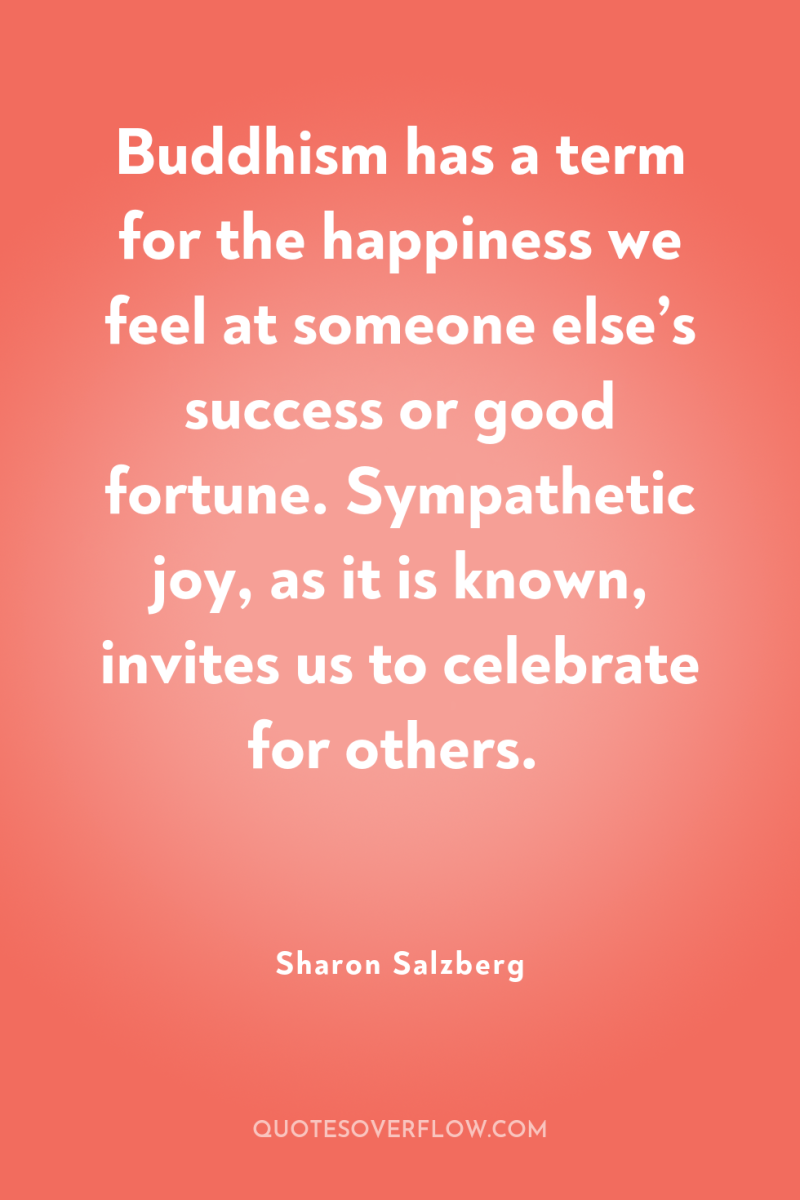
11
Buddhism has a term for the happiness we feel at someone else’s success or good fortune. Sympathetic joy, as it is known, invites us to celebrate for others.Sharon Salzberg
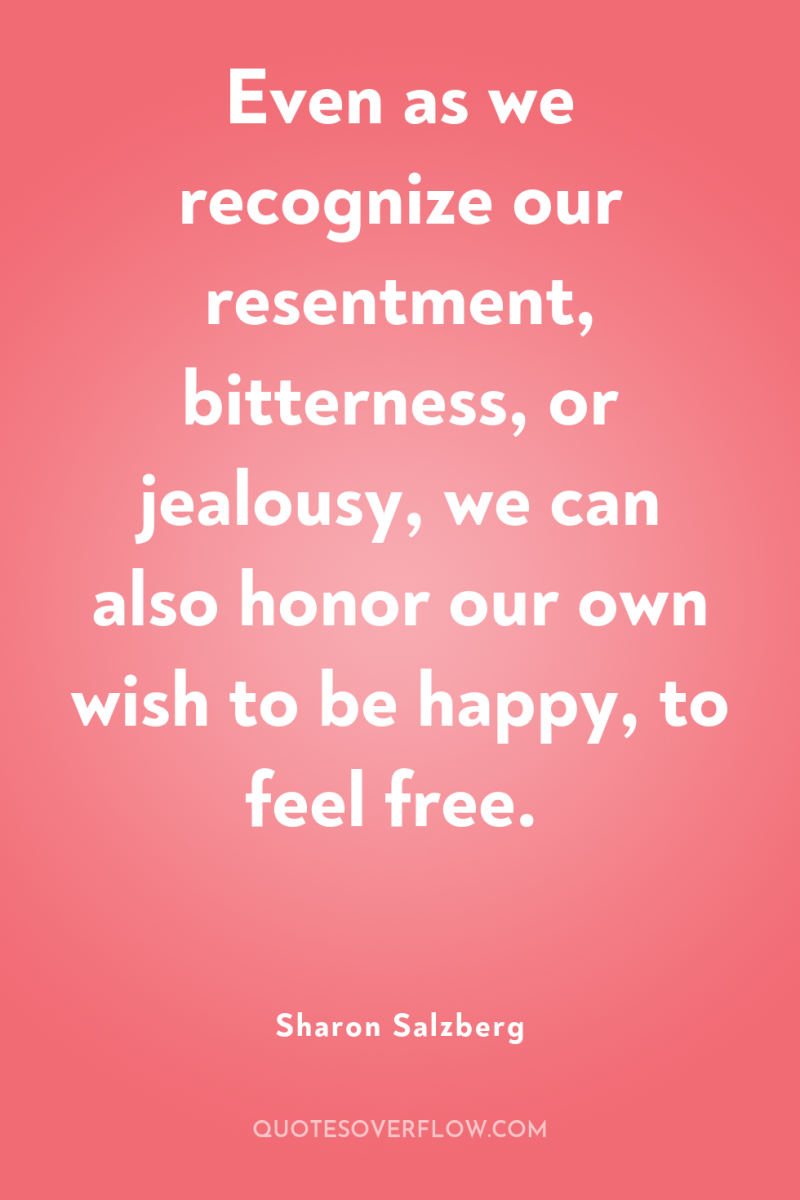
12
Even as we recognize our resentment, bitterness, or jealousy, we can also honor our own wish to be happy, to feel free.Sharon Salzberg
13
The more we identify and acknowledge moments when we’re unable to share in someone else’s pleasure and ask ourselves whether another person’s happiness truly jeopardizes our own, the more we pave the way for experiencing sympathetic joySharon Salzberg
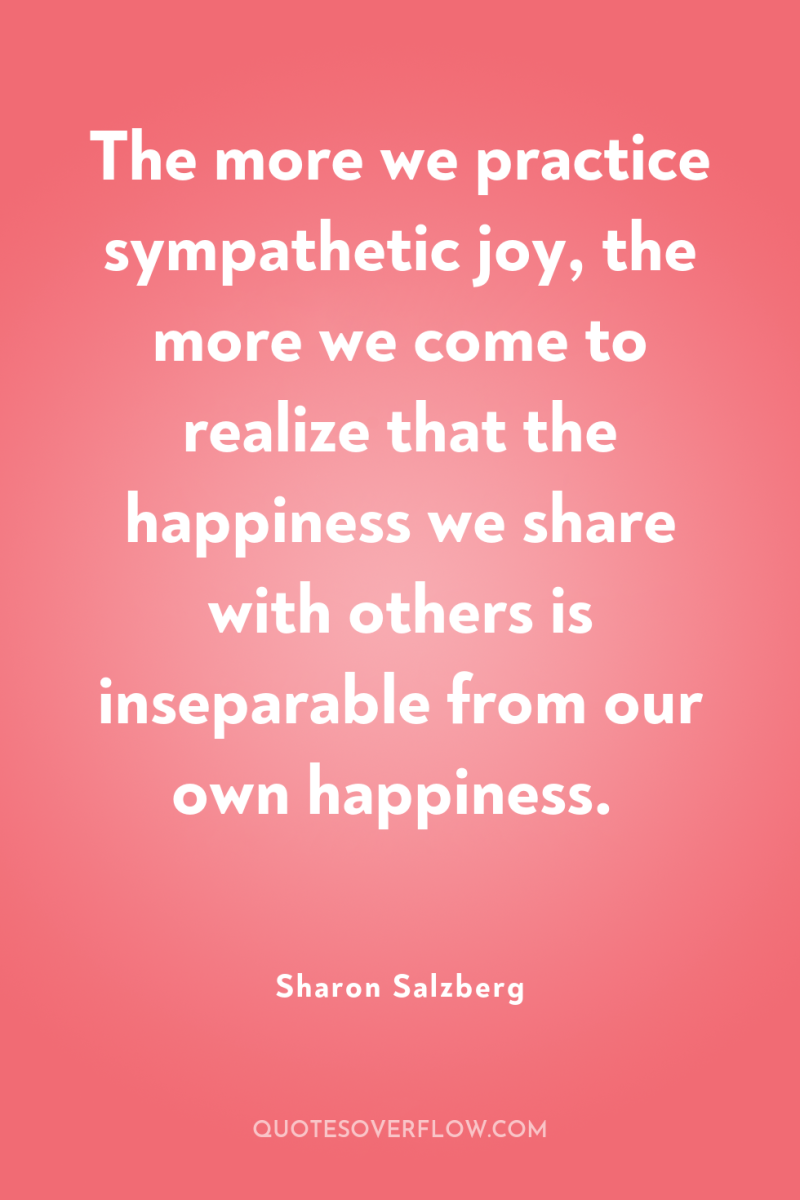
14
The more we practice sympathetic joy, the more we come to realize that the happiness we share with others is inseparable from our own happiness.Sharon Salzberg
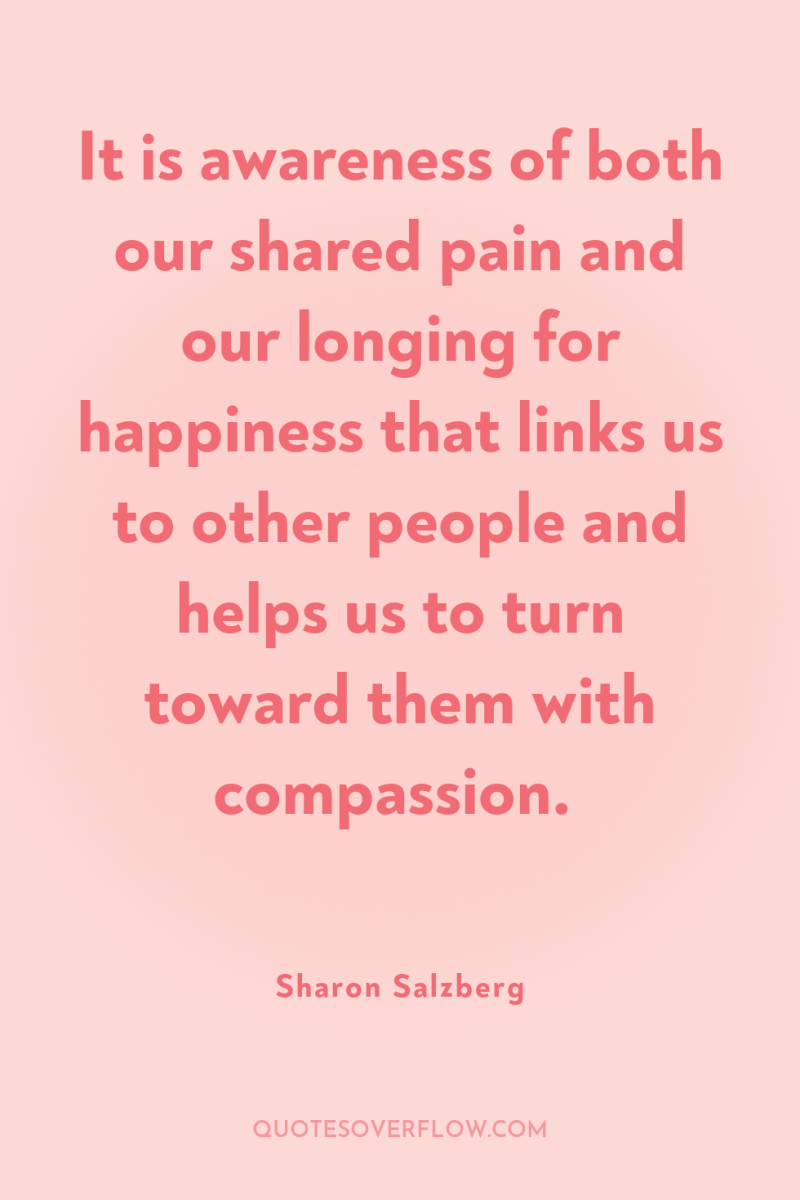
15
It is awareness of both our shared pain and our longing for happiness that links us to other people and helps us to turn toward them with compassion.Sharon Salzberg
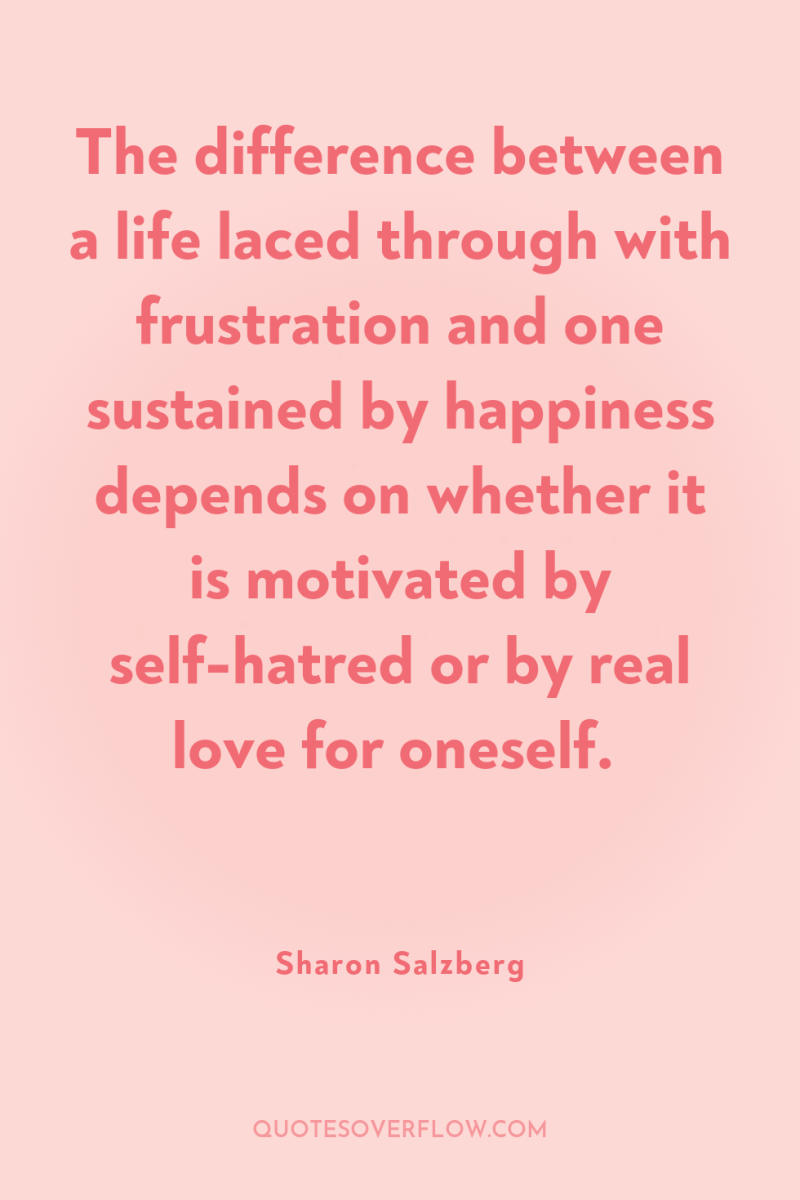
16
The difference between a life laced through with frustration and one sustained by happiness depends on whether it is motivated by self-hatred or by real love for oneself.Sharon Salzberg
17
When we can step back even briefly from our hurt, sorrow, and anger, when we put our faith in the possibility of change, we create the possibility for non-judgmental inquiry that aims for healing rather than victory.Sharon Salzberg
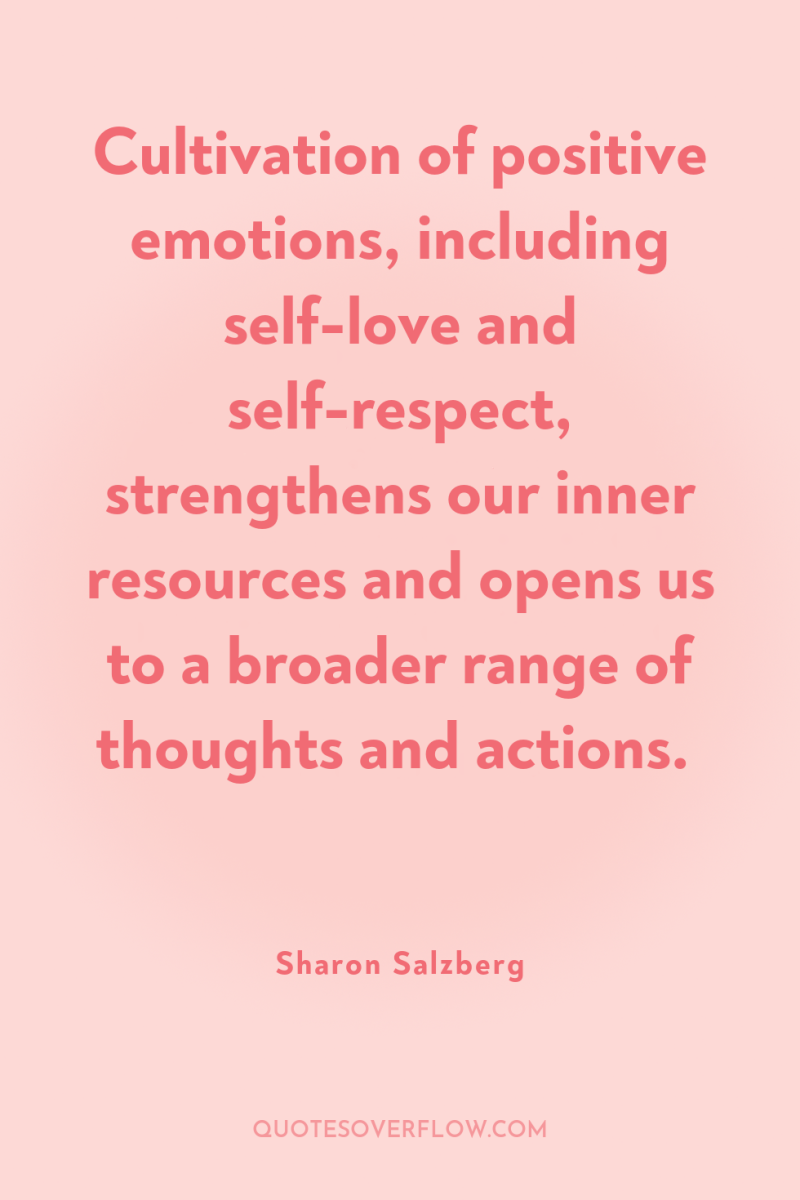
18
Cultivation of positive emotions, including self-love and self-respect, strengthens our inner resources and opens us to a broader range of thoughts and actions.Sharon Salzberg
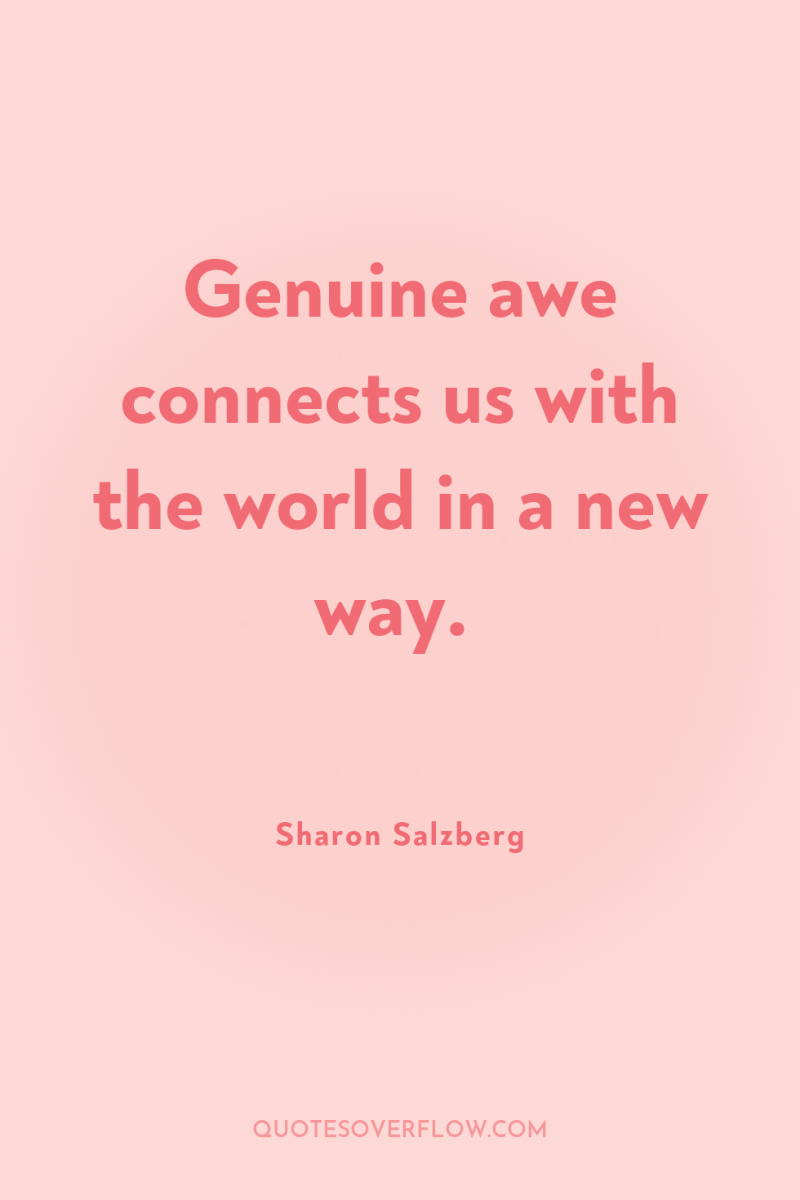
19
Genuine awe connects us with the world in a new way.Sharon Salzberg
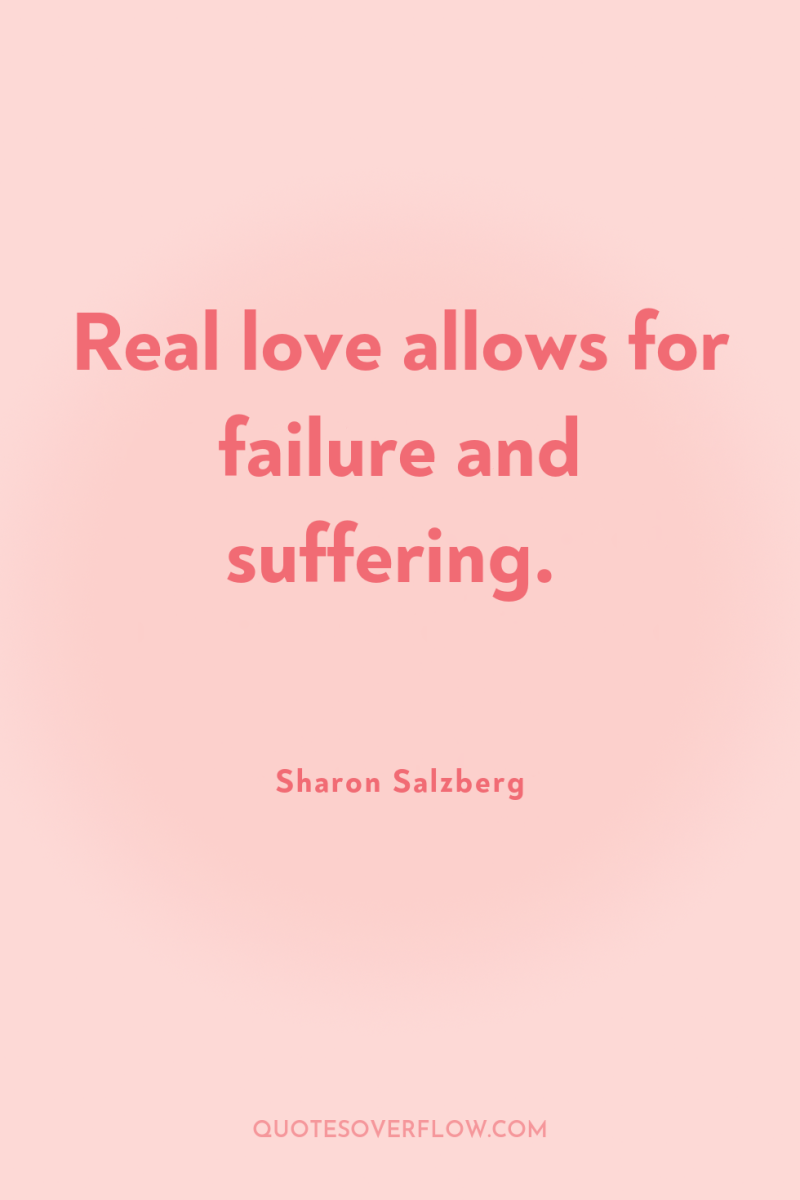
20
Real love allows for failure and suffering.Sharon Salzberg
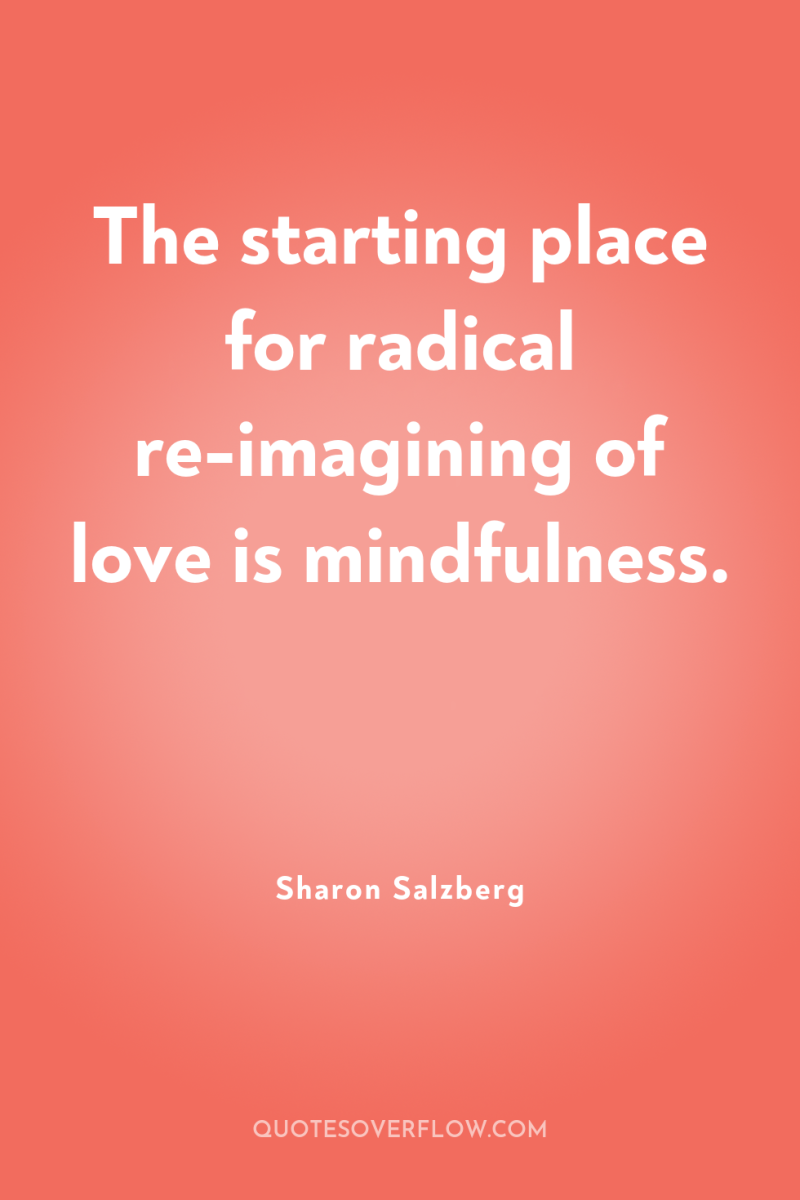
21
The starting place for radical re-imagining of love is mindfulness.Sharon Salzberg
22
The costs of keeping secrets include our growing isolation due to fear of detection and the ways we shut down inside to avoid feeling the effects of our behavior. We can never afford to be truly seen and known–even by ourselves.Sharon Salzberg
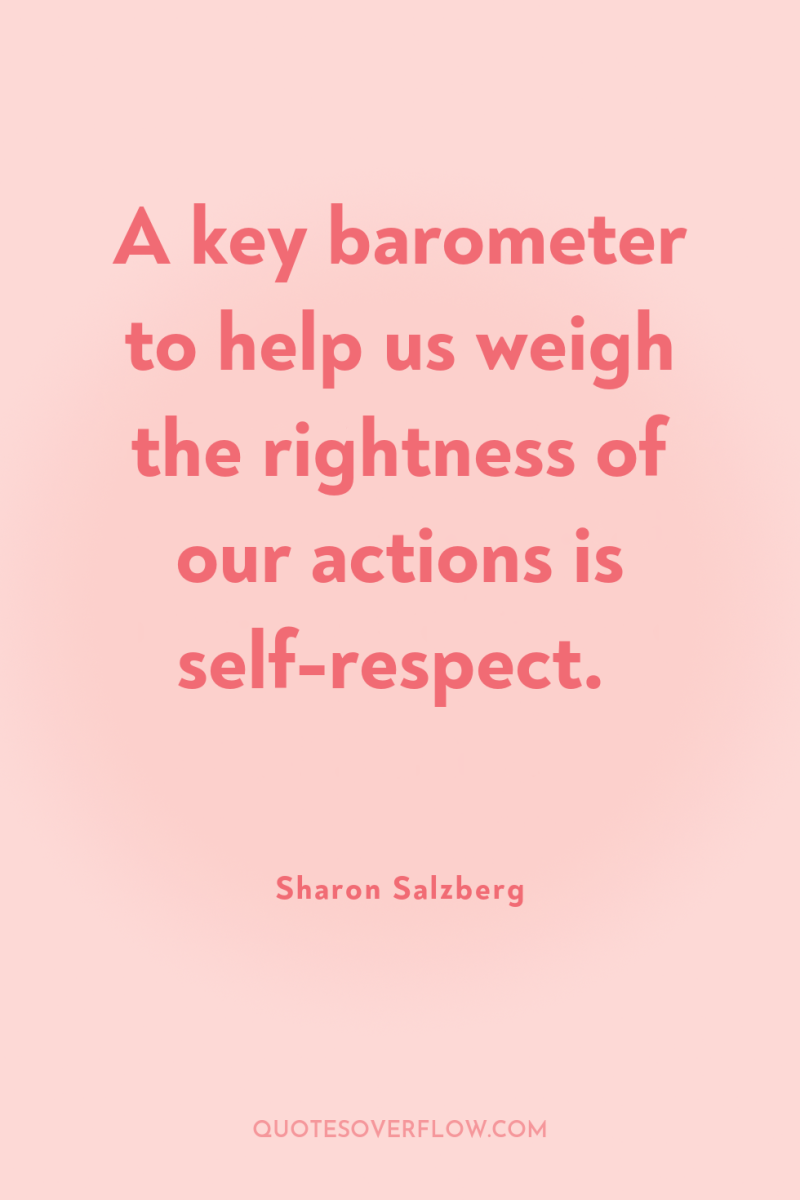
23
A key barometer to help us weigh the rightness of our actions is self-respect.Sharon Salzberg
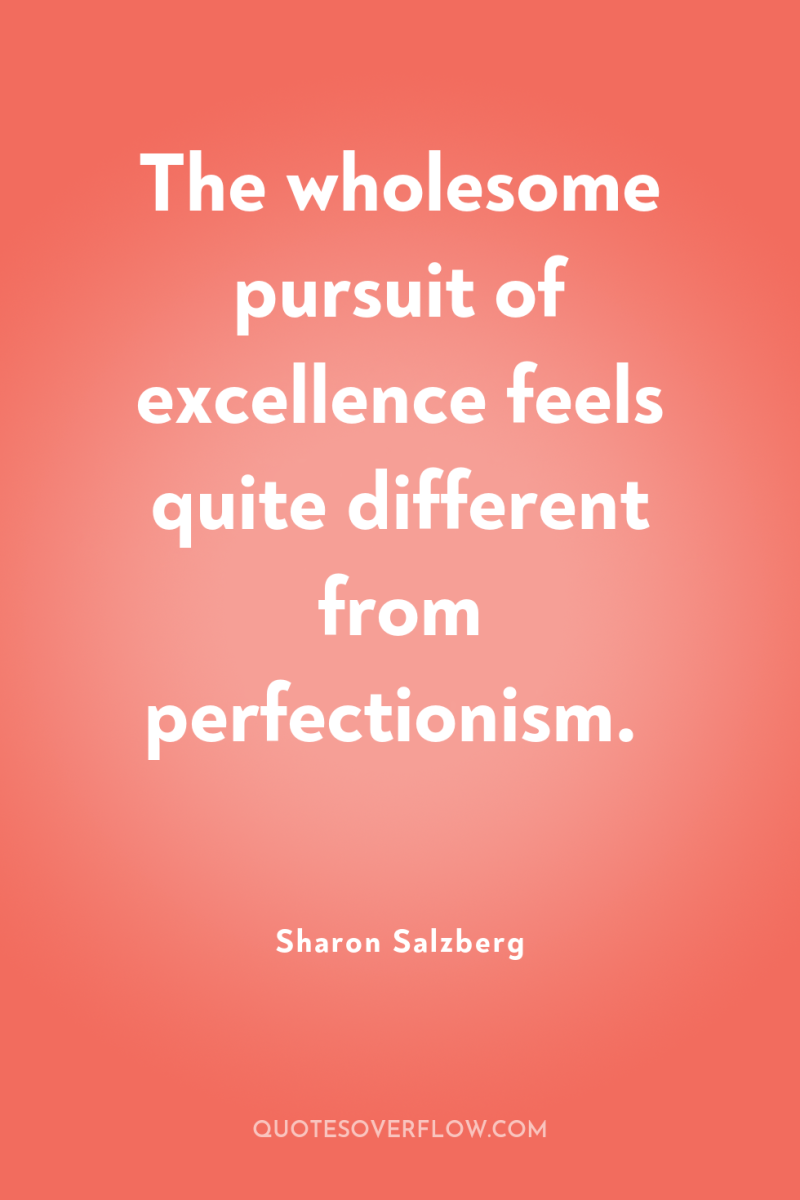
24
The wholesome pursuit of excellence feels quite different from perfectionism.Sharon Salzberg
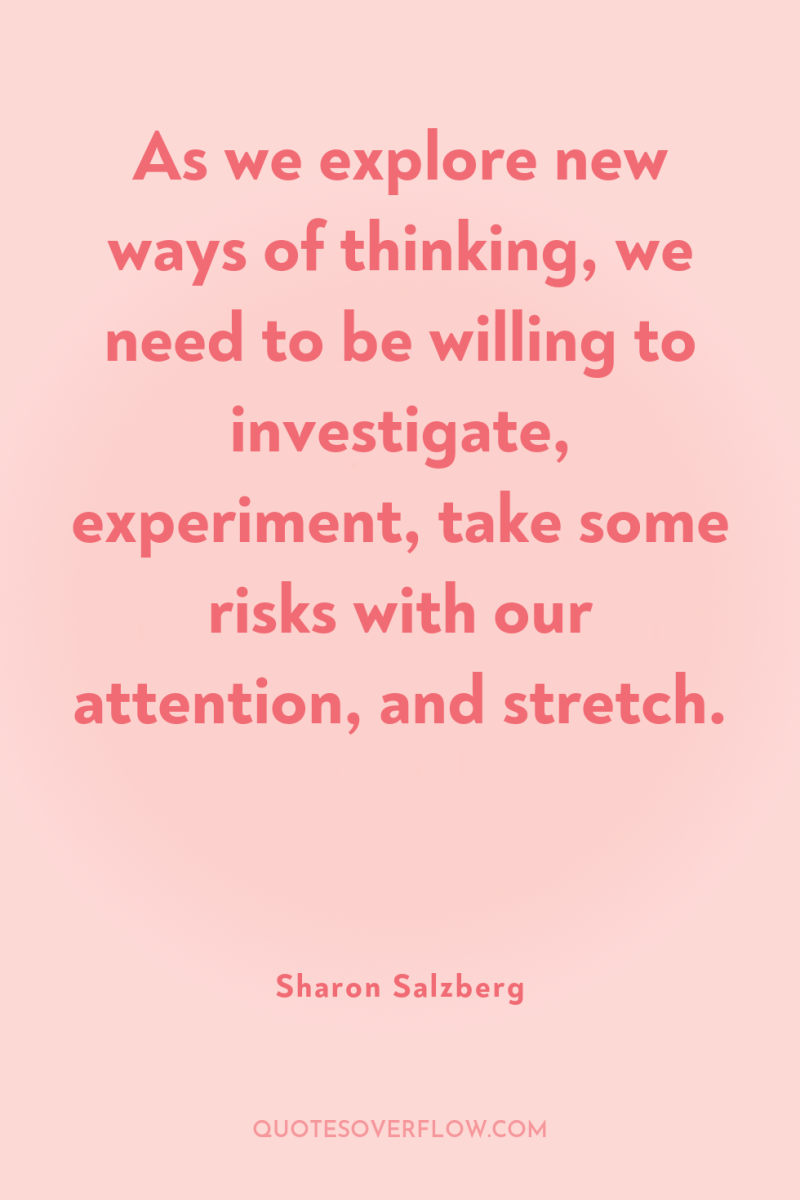
25
As we explore new ways of thinking, we need to be willing to investigate, experiment, take some risks with our attention, and stretch.Sharon Salzberg
26
Forgiveness can be bittersweet. It contains the sweetness of the release of a story that has caused us pain, but also the poignant reminder that even our dearest relationships change over the course of a lifetime.Sharon Salzberg
27
When we respond to our pain and suffering with love, understanding, and acceptance–for ourselves, as well as others– over time, we can let go of our anger, even when we’ve been hurt to the core. But that doesn’t mean we ever forget.Sharon Salzberg
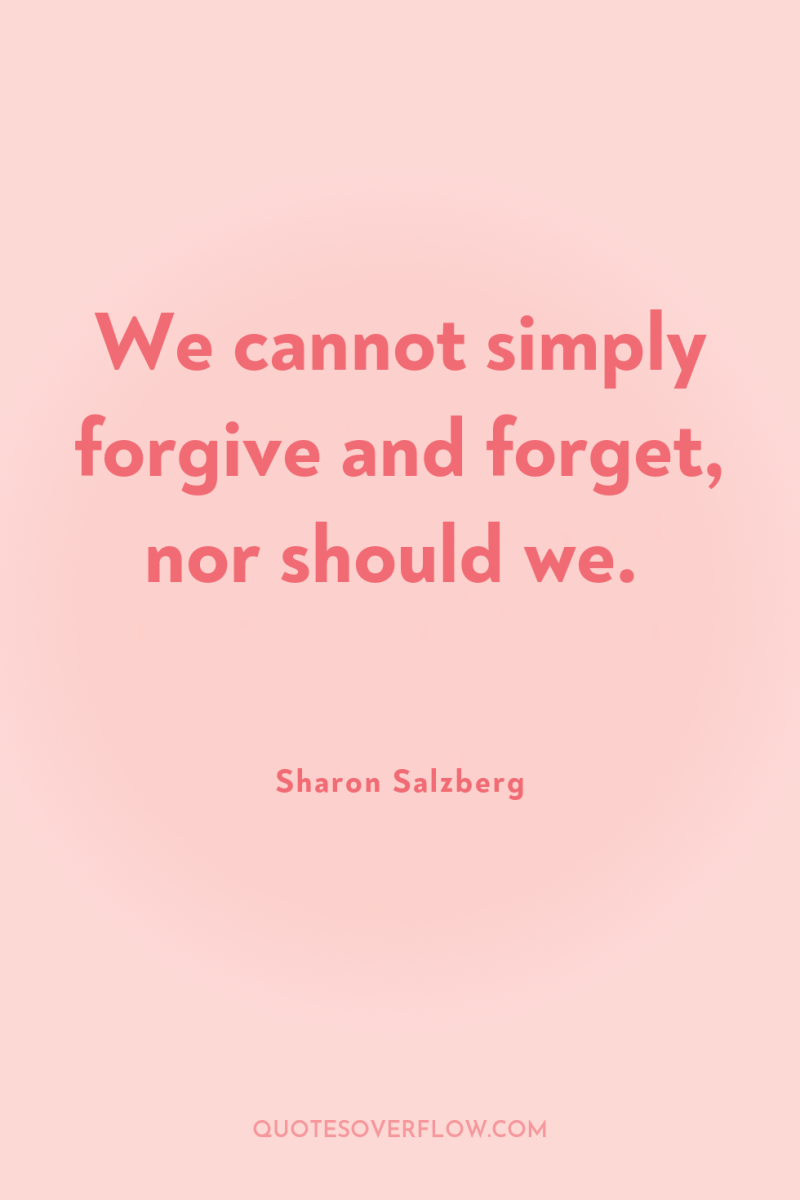
28
We cannot simply forgive and forget, nor should we.Sharon Salzberg
29
To forgive, we may need to open our minds to a fuller exploration of the context in which the events occurred, and feel compassion for the circumstances and everyone involved, starting with ourselves.Sharon Salzberg
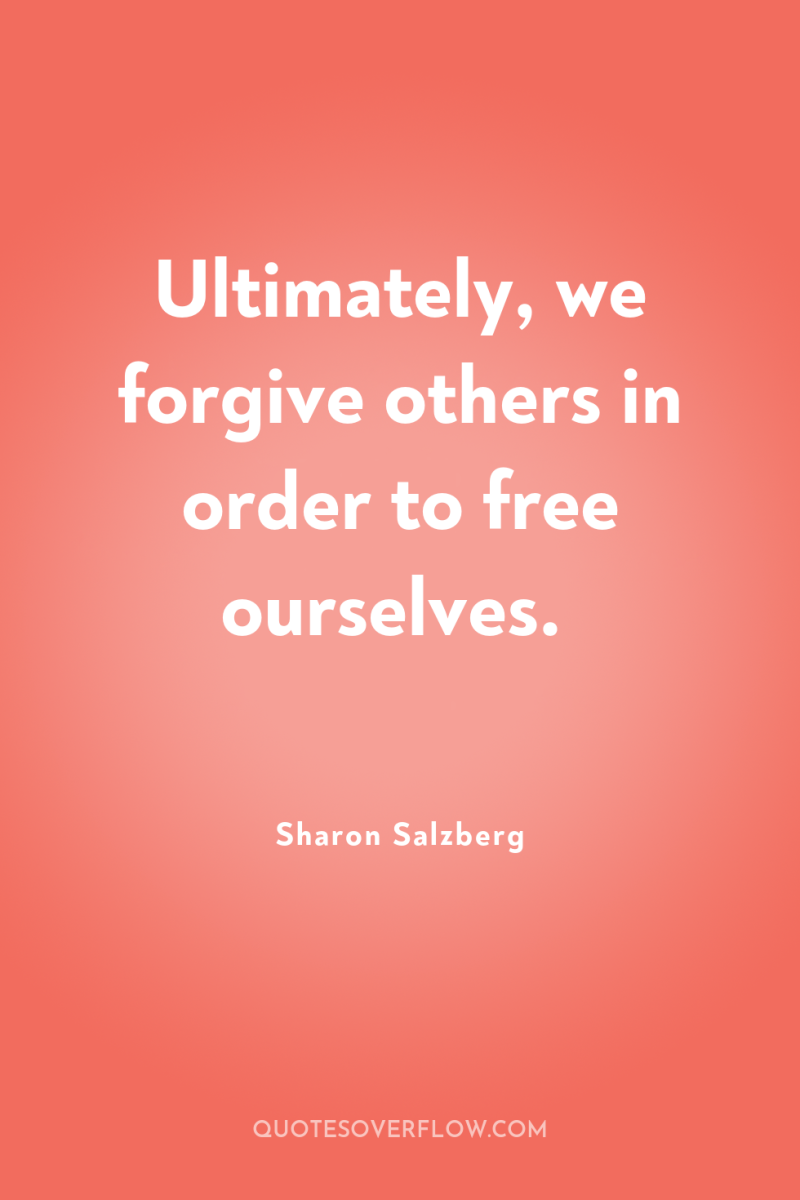
30
Ultimately, we forgive others in order to free ourselves.Sharon Salzberg

31
Real forgiveness in close relationships is never easy. It can’t be rushed or engineered.Sharon Salzberg
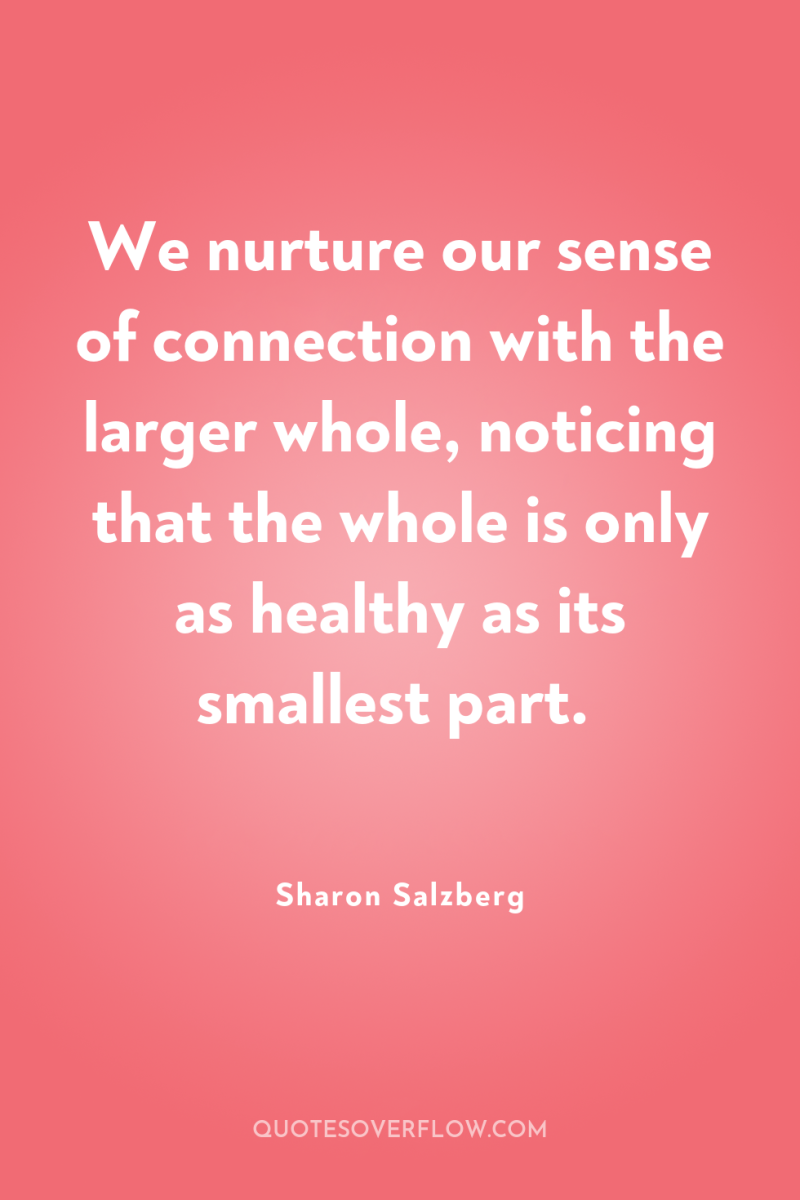
32
We nurture our sense of connection with the larger whole, noticing that the whole is only as healthy as its smallest part.Sharon Salzberg
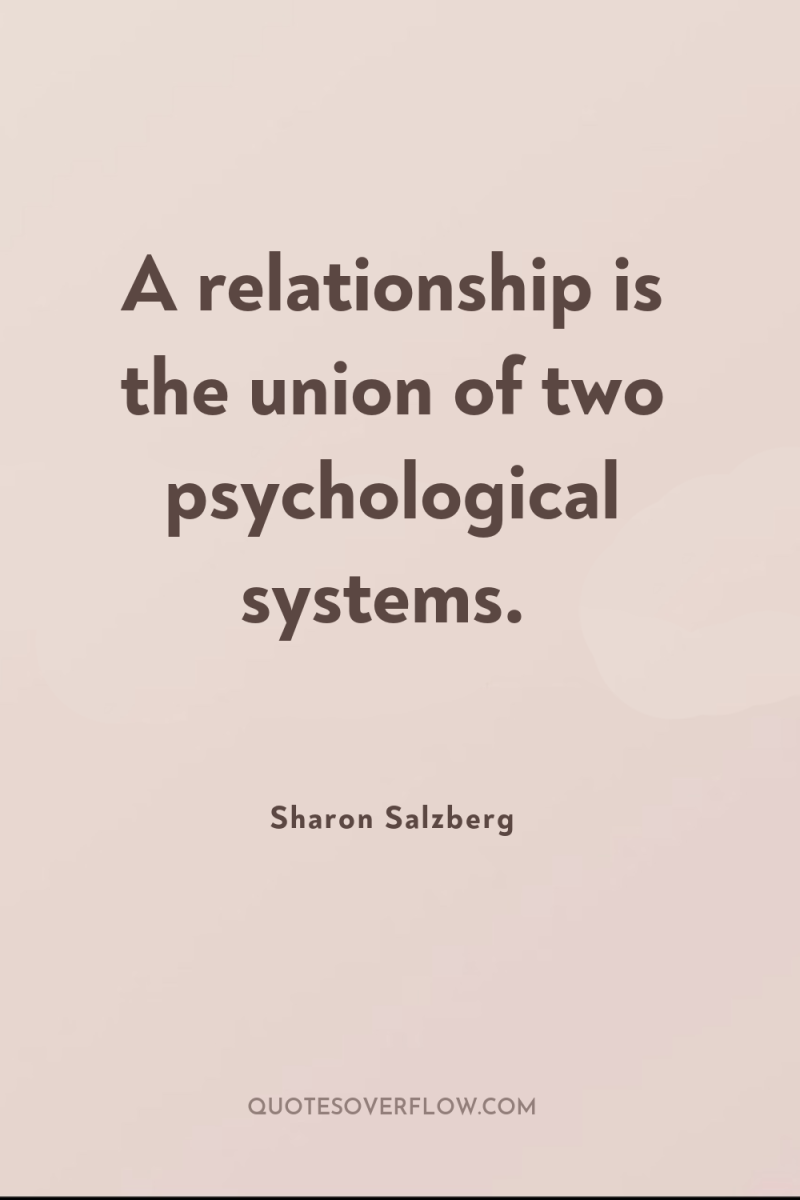
33
A relationship is the union of two psychological systems.Sharon Salzberg
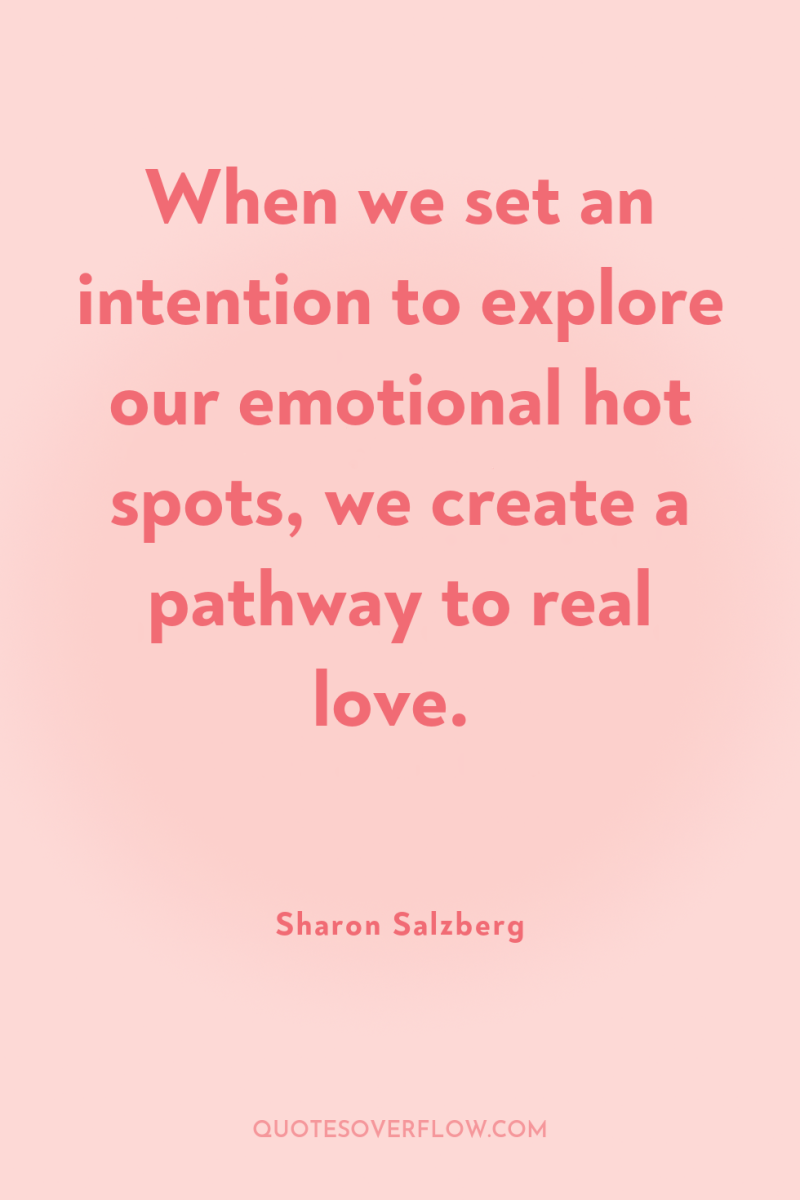
34
When we set an intention to explore our emotional hot spots, we create a pathway to real love.Sharon Salzberg
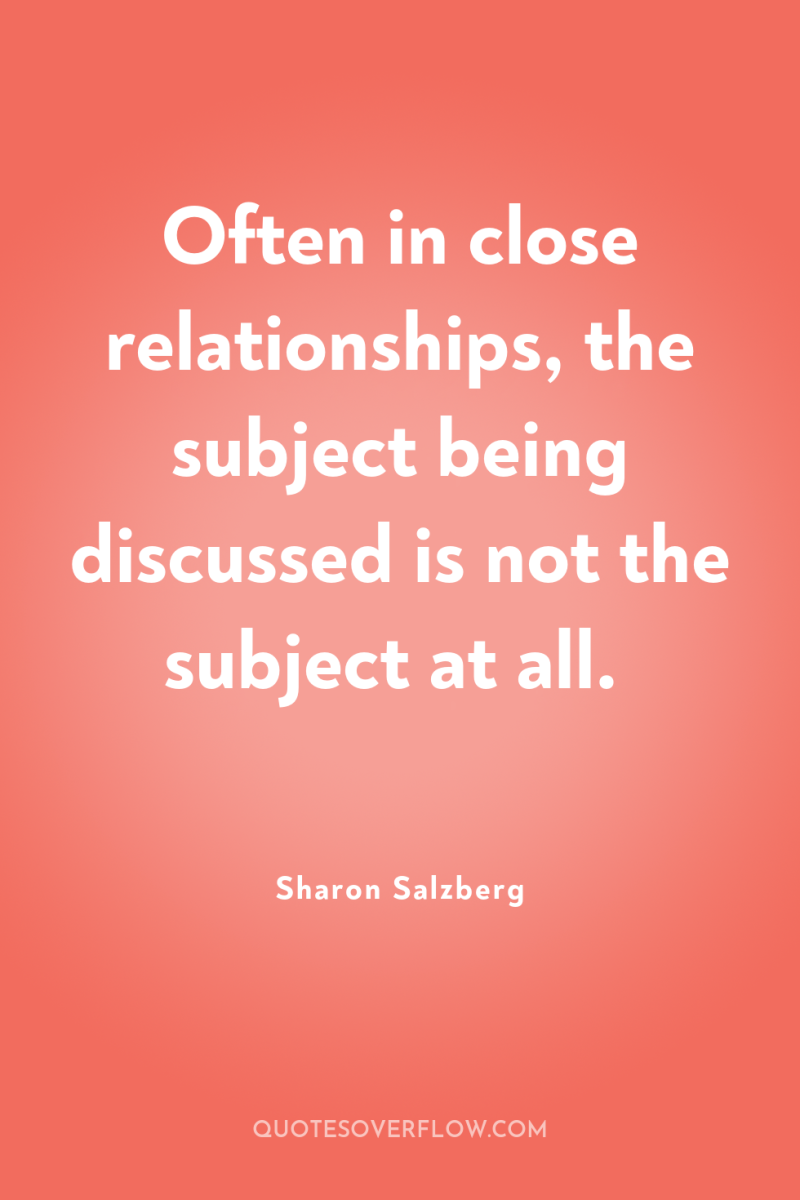
35
Often in close relationships, the subject being discussed is not the subject at all.Sharon Salzberg

36
You don't have to love yourself unconditionally before you can give or receive real love.Sharon Salzberg
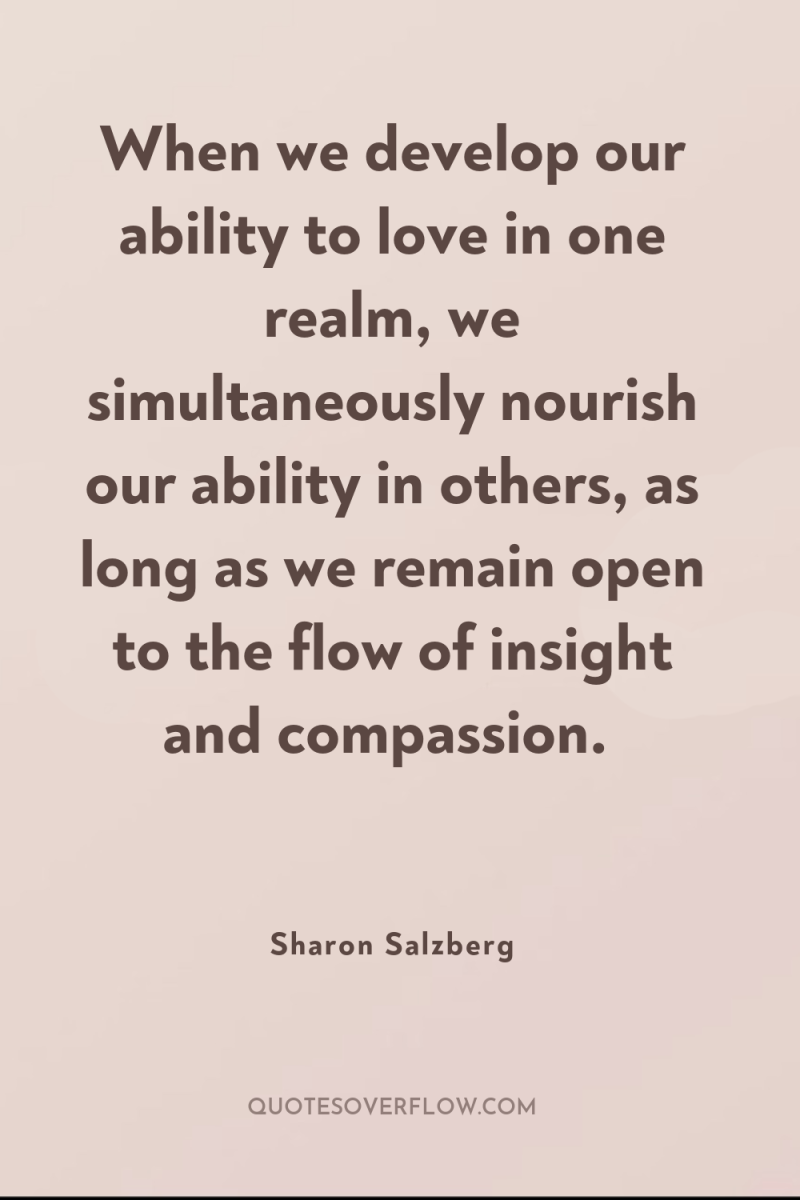
37
When we develop our ability to love in one realm, we simultaneously nourish our ability in others, as long as we remain open to the flow of insight and compassion.Sharon Salzberg
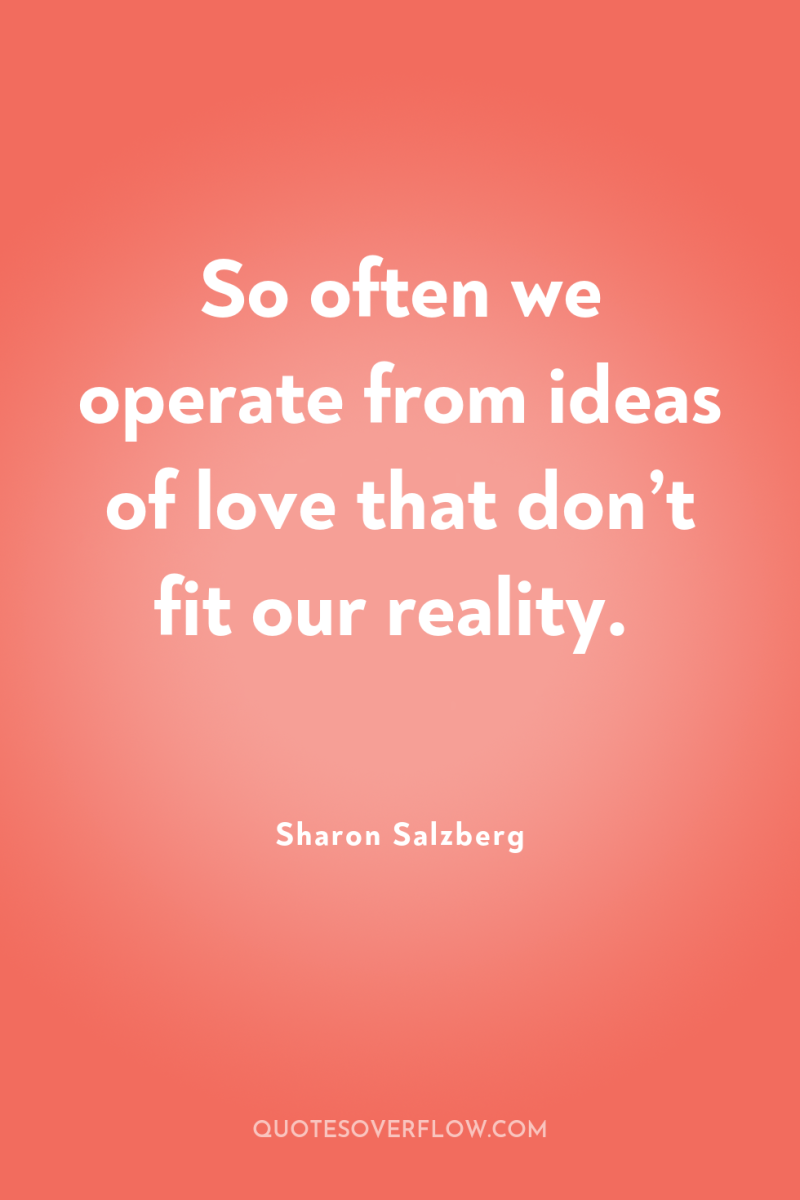
38
So often we operate from ideas of love that don’t fit our reality.Sharon Salzberg
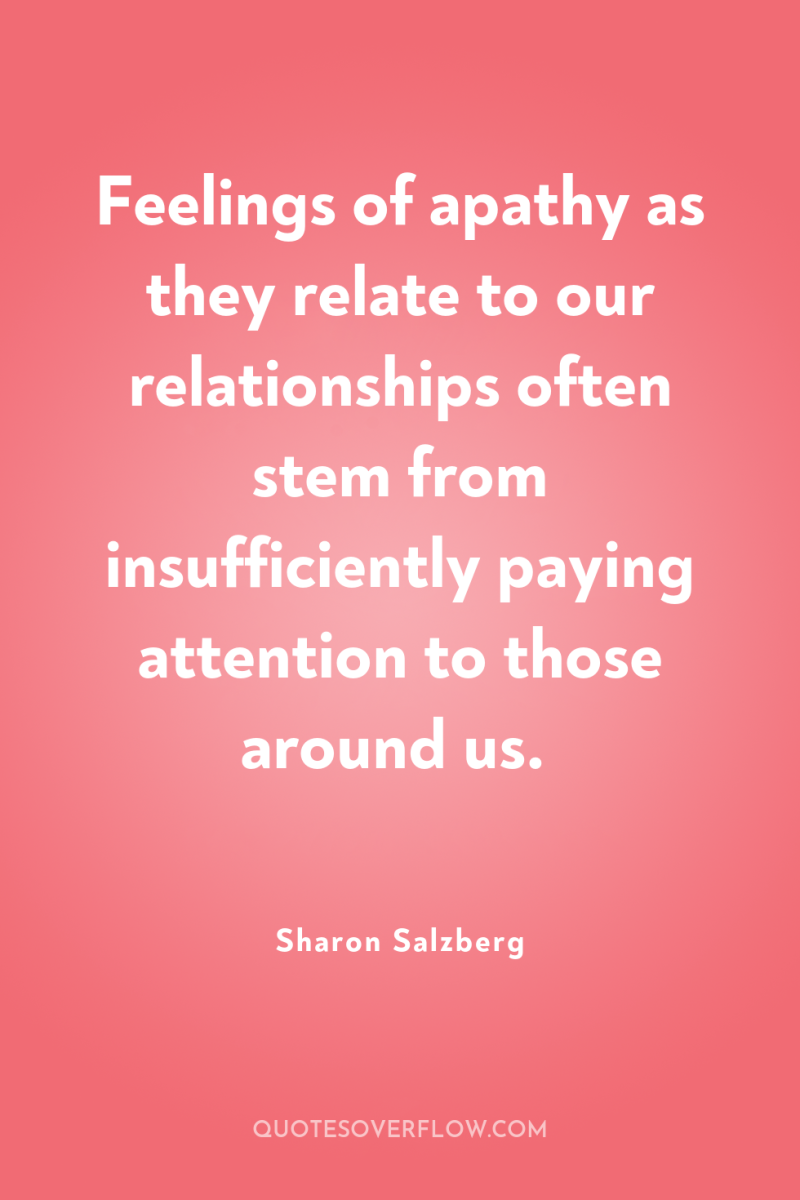
39
Feelings of apathy as they relate to our relationships often stem from insufficiently paying attention to those around us.Sharon Salzberg
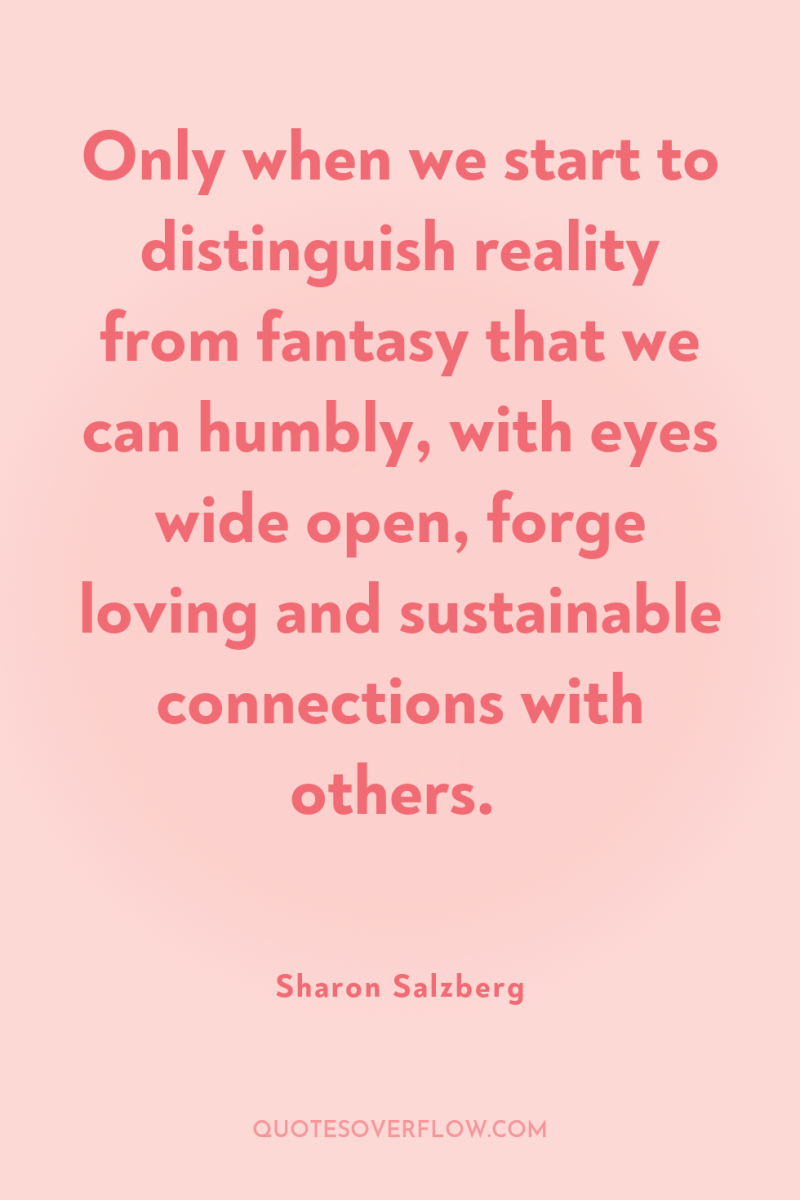
40
Only when we start to distinguish reality from fantasy that we can humbly, with eyes wide open, forge loving and sustainable connections with others.Sharon Salzberg
41
What makes awe such a powerful call to love is that it’s disruptive. It sneaks up on us. It doesn’t ask our permission to wow us; it just does. Awe can arise from a single glance, a sound, a gesture.Sharon Salzberg
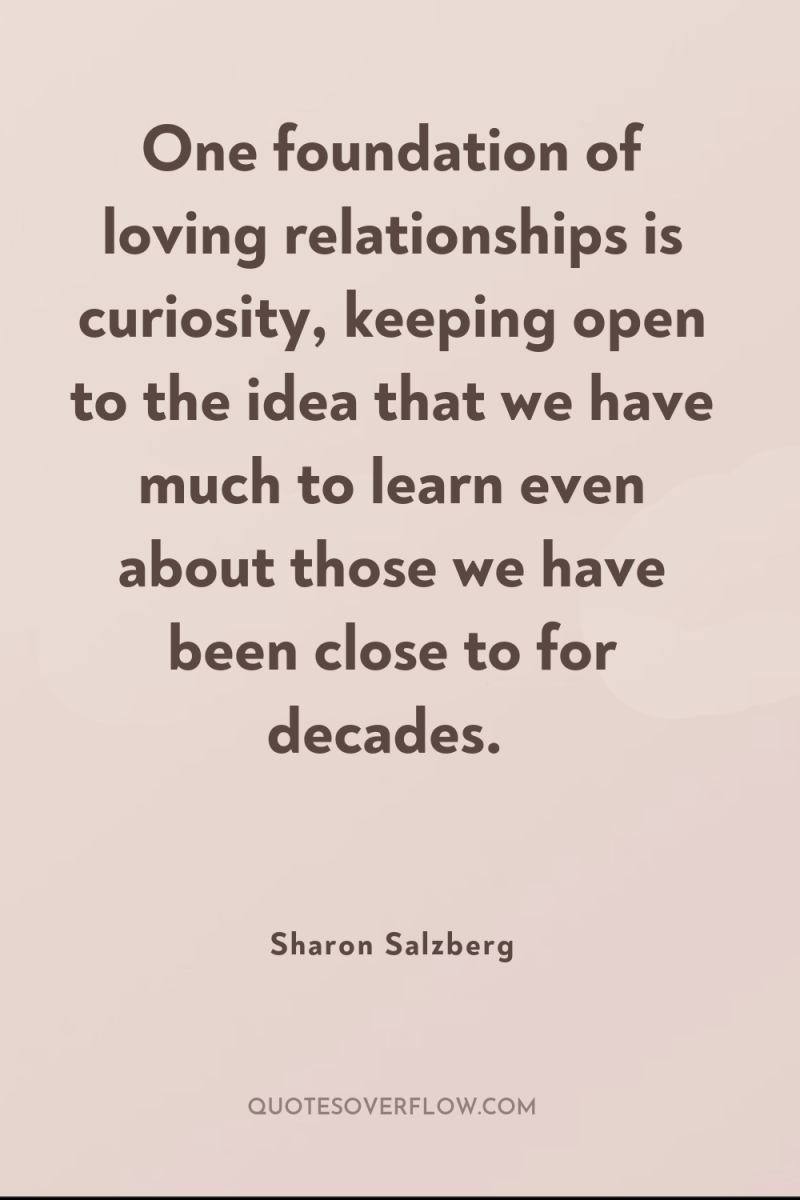
42
One foundation of loving relationships is curiosity, keeping open to the idea that we have much to learn even about those we have been close to for decades.Sharon Salzberg
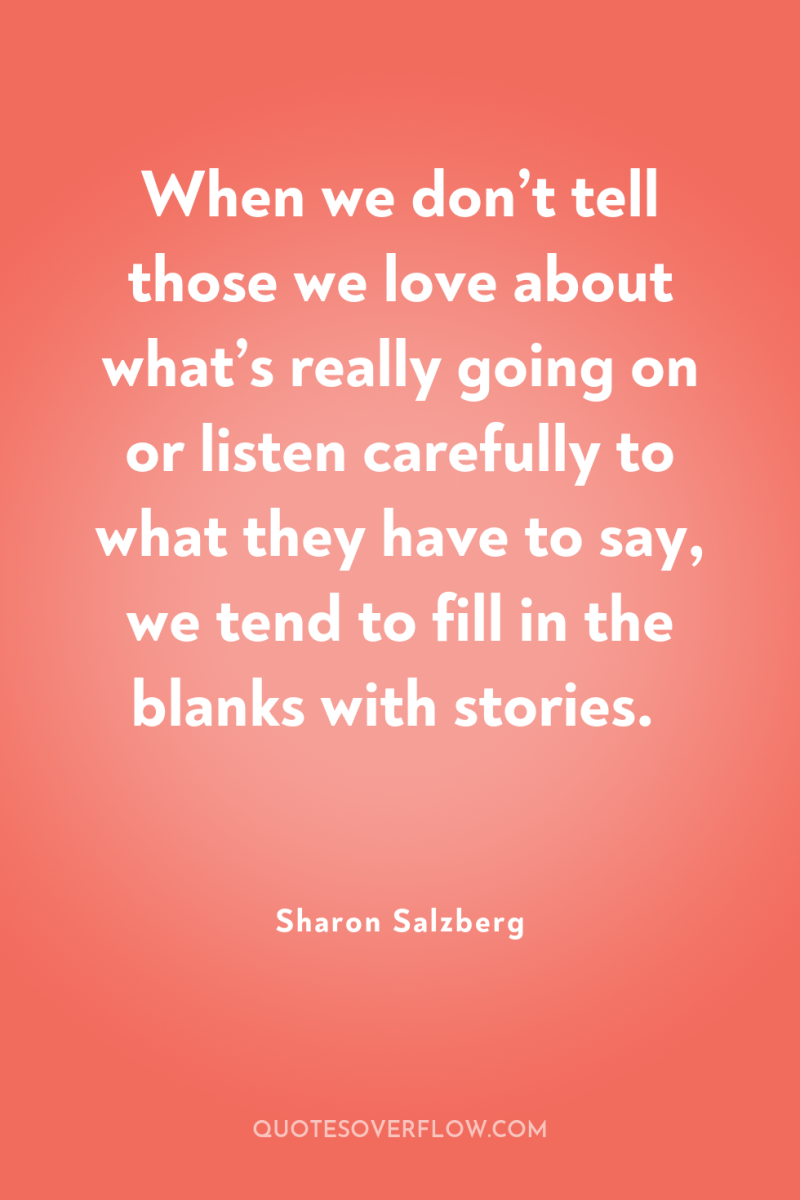
43
When we don’t tell those we love about what’s really going on or listen carefully to what they have to say, we tend to fill in the blanks with stories.Sharon Salzberg
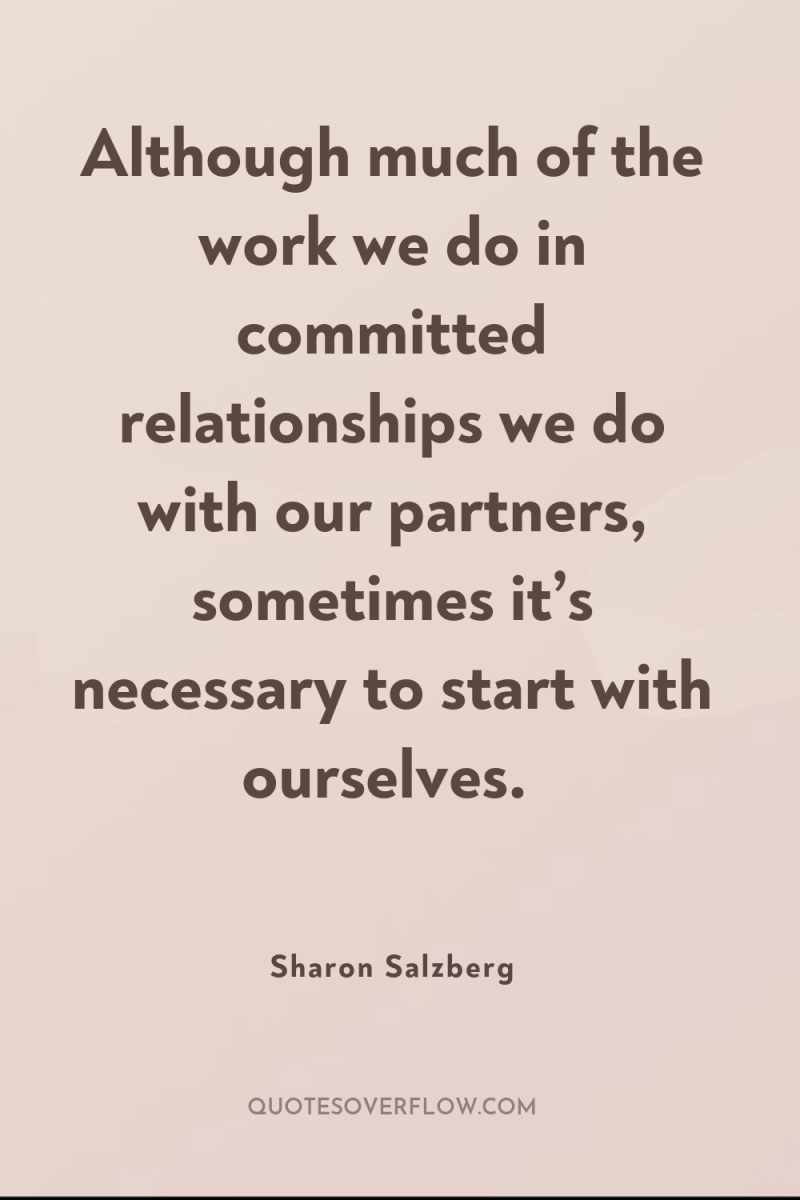
44
Although much of the work we do in committed relationships we do with our partners, sometimes it’s necessary to start with ourselves.Sharon Salzberg
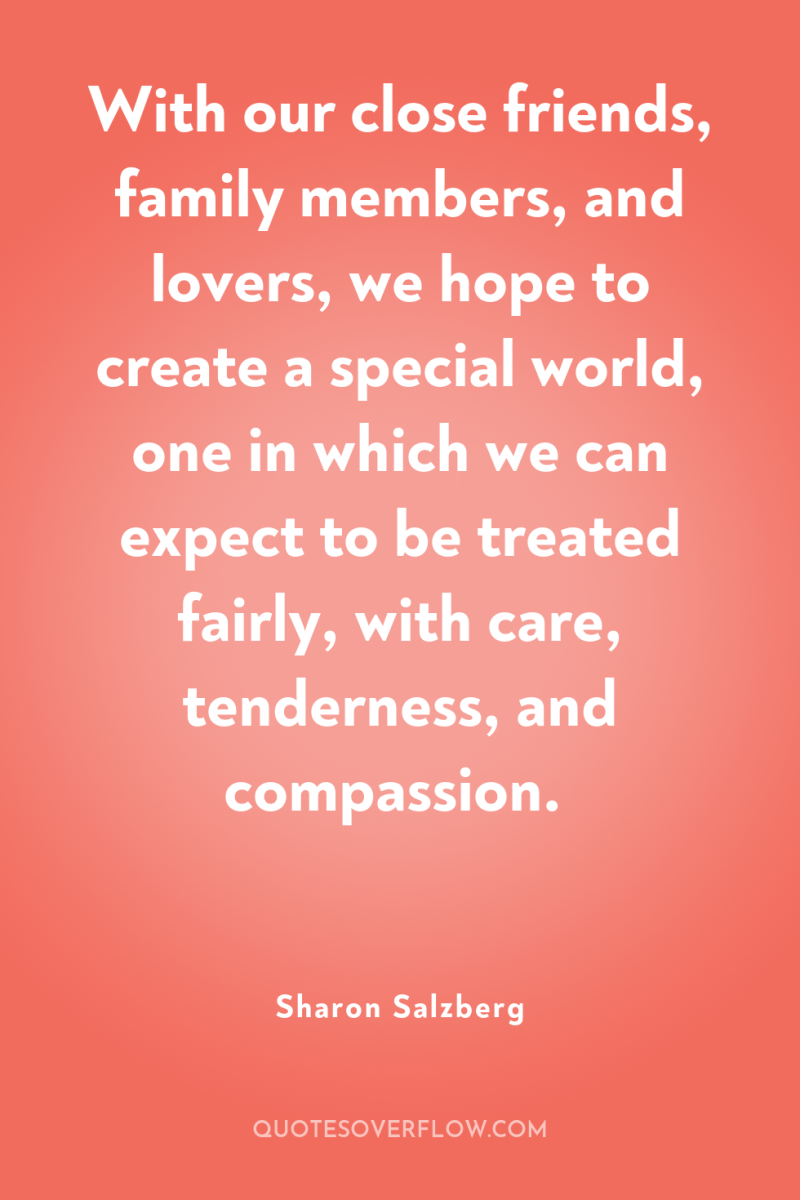
45
With our close friends, family members, and lovers, we hope to create a special world, one in which we can expect to be treated fairly, with care, tenderness, and compassion.Sharon Salzberg
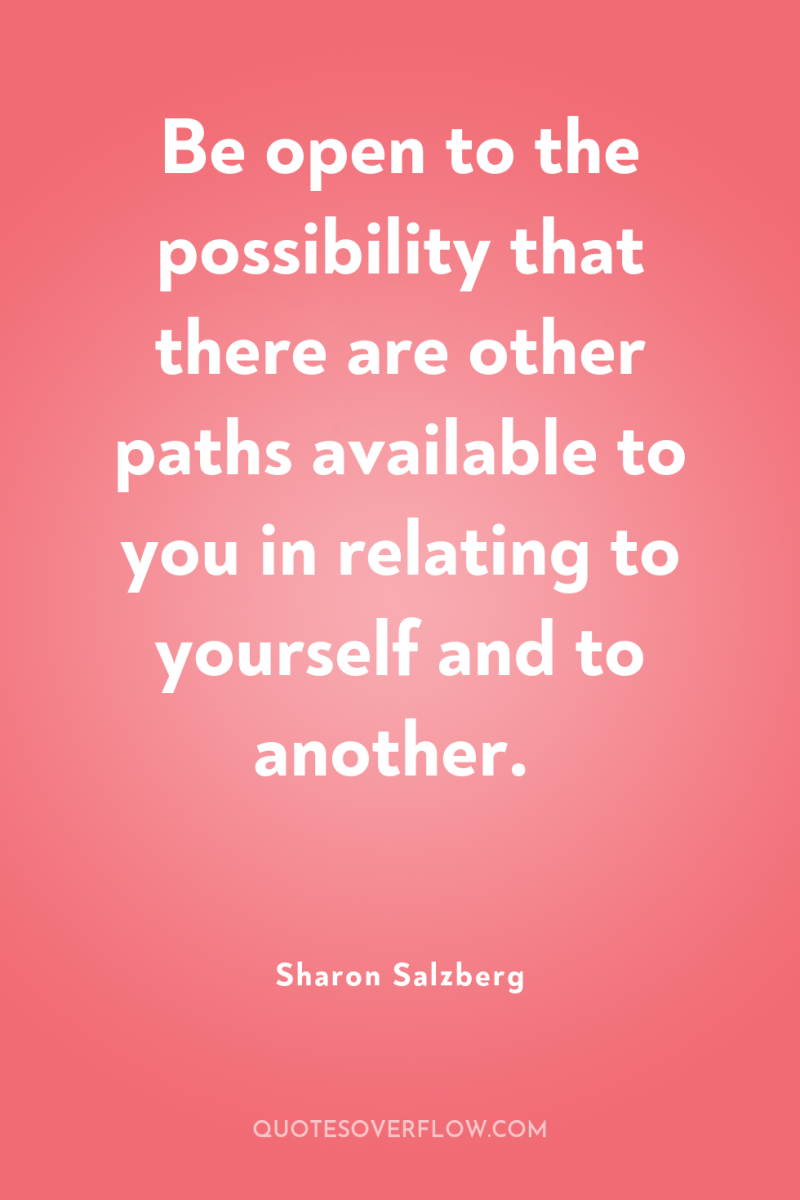
46
Be open to the possibility that there are other paths available to you in relating to yourself and to another.Sharon Salzberg
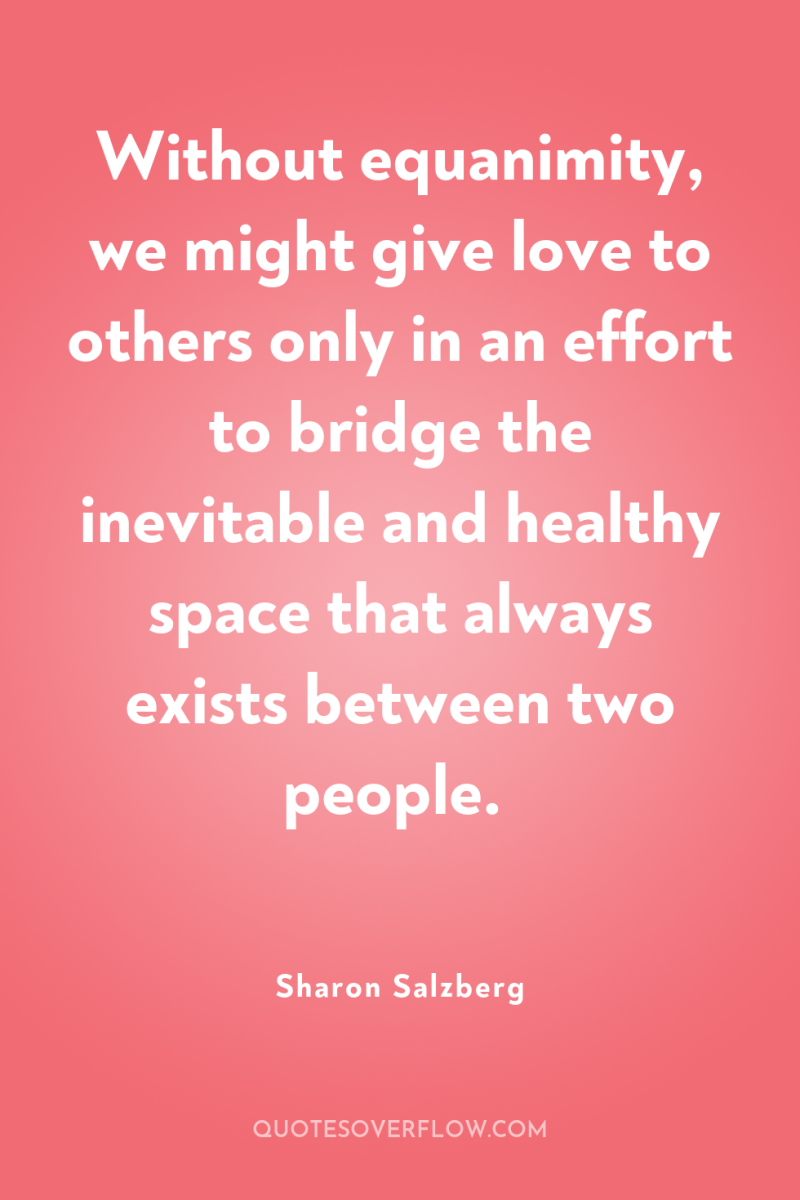
47
Without equanimity, we might give love to others only in an effort to bridge the inevitable and healthy space that always exists between two people.Sharon Salzberg
48
Whether we fear the existence of boundaries with others or crave more of them, there’s no denying that individuation and separation are inevitable parts of loving relationships that become the site of tension.Sharon Salzberg
49
We have to know ourselves to know where we end and another person begins, and we have to develop the skills to navigate the space between us. Or else we will seek wholeness through false means that honor neither us nor those we love.Sharon Salzberg
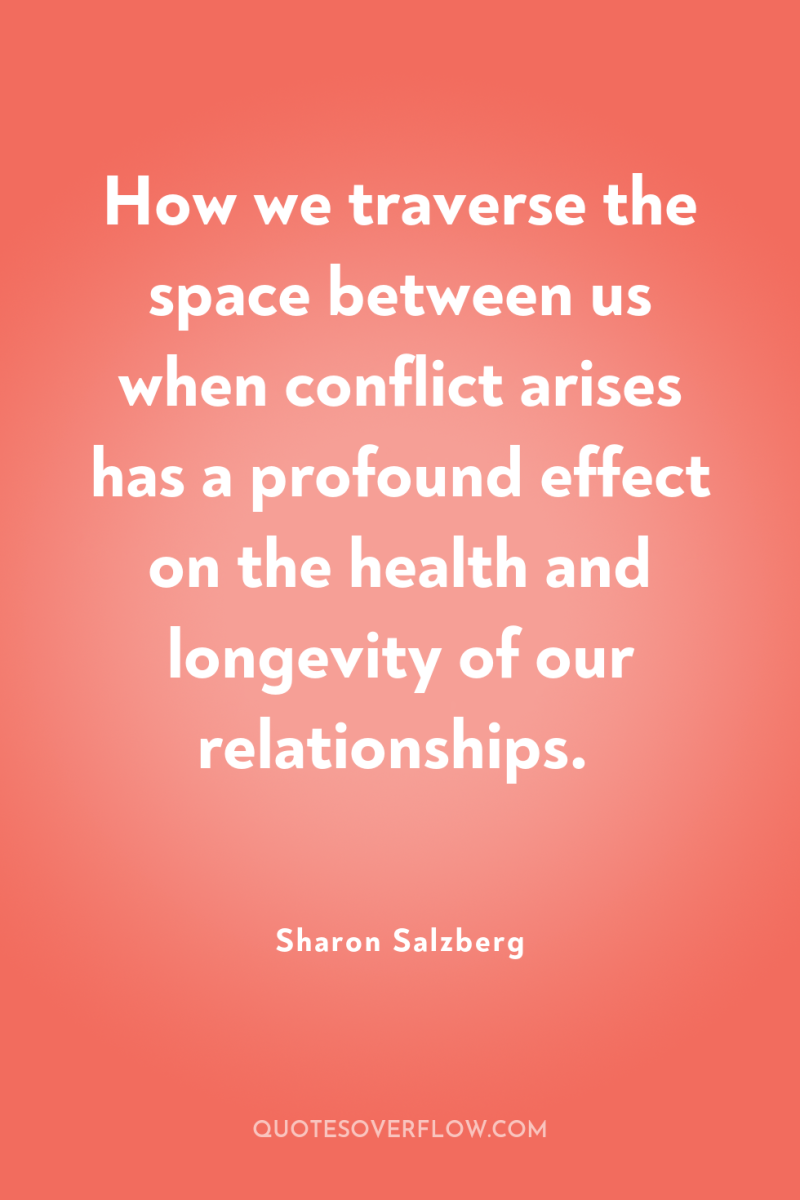
50
How we traverse the space between us when conflict arises has a profound effect on the health and longevity of our relationships.Sharon Salzberg